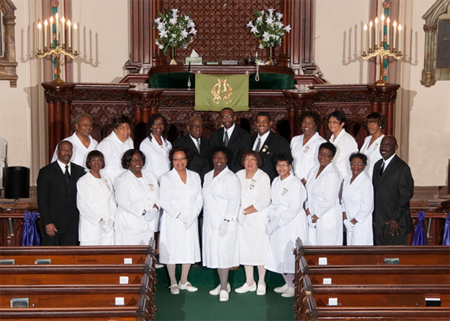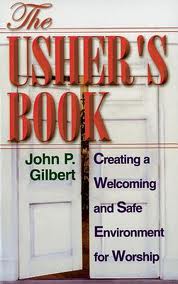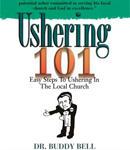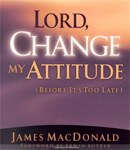 St. James A.M.E. Church (Newark, NJ) Joint Usher Board Ministry
St. James A.M.E. Church (Newark, NJ) Joint Usher Board MinistryUSHERS AND NURSES GUILD SUNDAY
CULTURAL RESOURCES
Sunday, June 9, 2013
Louella McIntosh, Guest Cultural Resource Commentator
Usher Board Ministry and Youth Ministry leader, St. James A.M.E. Church, Newark, NJ
I. Introduction – What Is a Church Usher?
According to the National United Church Ushers Association of America, Inc.’s School of Ushering Manual, the Ministry of Church ushering is a sacred and powerful responsibility. In order to carry out the duties and responsibilities of Church ushering, a Church usher must first and foremost be a Christian. Church ushers must be Christ-like and have a spirit of meekness and humility. He or she must be well-trained in all aspects of the techniques of Church ushering. An usher is an official of the church he or she serves, an official whose business it is to seat persons and to aid them when possible.
An usher is also forerunner, for his or her responsibility is to make sure the worship place is ready before the clergy and congregation enter—they prepare the way. Church ushers stand as sentinels of the house of God at all times during a worship service and during other church rituals. Ushers have a great responsibility and are to do their duty with diligence and decency. As 1 Corinthians 12:40 says, Let all things be done decently and in order.
I believe the history of ushering can be traced to the Bible. God directed Moses in the wilderness of Sinai to organize the first great group of ushers. The first ushers operated under the leadership of the Tribe of Levi as they were given instructions for the upkeep of the Temple. They were to have the place of worship ready for the Priest to enter. They were to oversee all the vessels and any other items of the Temple. The Tribe of Levi also served as guards and protected the Temple; there were various entrances for various groups. The Levites were set aside from among the congregation of the children of Israel to perform those specific tasks.
Throughout the Scriptures we can find ushers called by various titles: watchmen (2 Samuel 18:24-27), porters (1 Chronicles 9:17-18), and doorkeepers (1 Chronicles 15:2-23). According to 1 Chronicles 15:23, Berechiah and Elkanah were to be gatekeepers for the Ark of the Covenant. Obed-edom and Jehiah also were gatekeepers of the Ark. The term doorkeeper lasted for centuries; today doorkeepers are called church ushers.
Melissa Evers, who prepared the Lectionary Commentary for Ushers and Nurses Guild Day for the Lectionary in 2012, provides information on the history of church nurses guilds:
As far as I have been able to determine, nurses guilds have been in black churches for about 70 years. Historically, by and large, it appears that they have always operated under the auspices of usher boards and primarily assisted clergy in the pulpit. Occasionally these were former nurses who had retired from working in hospitals. Over time, as more churches gained more than one or two nurses, the phrase nurses guild gained common usage. Also, over time, nurses began to do more than just assist clergy in the pulpit. They were responsible for first-aid stations in churches and called upon if persons became ill and if they fainted. A member of the guild was ready on the spot usually with smelling salt (we all called it smelling sauce). Youth were even trained to be nurses guild members and were recognized in churches by candy striper outfits similar to those of days gone by that were worn in hospitals by young volunteers.
Although many nurses guild members may not have medical training or be nurses, it is now common for church nurses to be certified in CPR. Finally, although most nurses in hospitals in the United States no longer wear hats, many in African American churches still do.
II. Showing Favoritism
The Epistle of James addresses several issues, particularly relationships and how faith in Jesus needs to affect one’s behavior amid those relationships. This letter could be considered a mini how-to book on Christian living. It also addresses how to deal with confrontation, challenges, and a call to commitment to live like Christ.
The book of James is the “wisdom” epistle of the New Testament. It is filled with practical advice for living as a Christian ought. For James, a living faith” is essential to making a difference in the world. He is fully aware of the persecution occurring against the “people of the Way” (Christians). He speaks about trials, persecution, and death as part of the lifestyle of Jesus’ people. James 2:1-13 says, My dear brother and sisters, how can you claim to have faith in our glorious Lord Jesus Christ if you favor some people over others?
For example, suppose someone comes into our meeting dressed in fancy clothes and expensive jewelry, and another comes in who is poor and dressed in dirty clothes. If you give special attention and a good seat to the rich person, but you say to the poor one “You can stand over there, or else sit on the floor”—well, doesn’t this discrimination show that your judgments are guided by evil motives?
James says, “Listen to me brothers and sisters. Hasn’t God chosen the poor in this world to be rich in faith? Aren’t those the ones who will inherit the Kingdom he promised to those who love him? But dishonor the poor! Isn’t it the rich who oppress you and drag you to court? Aren’t they the ones who slander Jesus Christ’s noble name?”
Chapter two points out that genuine faith forbids favoritism. This chapter is not couched in theological language. James says simply, “My brethren, have not the faith of our Lord Jesus Christ, the Lord of glory, with respect of persons.”
What has all of this to do with church ushers and nurses? Very simply, those who would stand as ushers and nurses in the household of faith cannot show favoritism. They do honor God by favoring the poor. This scripture is timely. More and more, people enter our sanctuaries who have felt societal isolation or have been made to feel unwelcomed for one reason or another by the world and the church. James makes clear to all ushers and nurses that ours is to be a welcoming posture. All people deserve to be treated with kindness, dignity, and respect in the house of God. We are not to assume what is in the hearts of people by their attire, their finances or lack thereof, or their skin color. Christ calls us to a higher standard—it is the standard of love taught us by Christ. This love is not a virtue. Instead, it is the standard by which all of the virtues rise or fall—Do you show the love for others that Christ showed (especially to the poor and the outcast)?
The Bible is clear that favoritism is not God’s will for our lives. Favoritism is incongruent with God’s character. “God does not show favoritism” (Romans 2:11); we all are equal before God. “There is no favoritism with him” (Ephesians 6:9). Colossians 3:25 says: “For the wrongdoer will be paid back for whatever wrong has been done, and there is no partiality.”
Favoritism devalues people for whom Christ died, indicates an ignorance of God’s values, and shows that you are guided by the wrong motives. It is dangerous and unwise to show favoritism in a church or a family.
Genesis 37:3-4 says, “Now Israel loved Joseph more than any other of his children, because he was the son of his old age; and he had made him a long robe with sleeves. But when his brothers saw that their father loved him more than all his brothers, they hated him, and could not speak peaceably to him. Joseph’s brothers noticed their father showed partiality, and consequently hated Joseph.”
Why does God condemn favoritism? Because it reveals a destructive double standard. Malachi 2:9 says, “And so I make you despised and abased before all the people, inasmuch as you have not kept my ways but have shown partiality in your instruction.” Acts 10:34 says, “Then Peter began to speak to them: I truly understand that God shows no partiality.”
This recurring theme of God’s dislike of favoritism makes clear that such behavior is unseemly for Christians and certainly for church ushers and nurses. Ours is a ministry that must set the standard for welcoming all, all the time.
III. A Personal Testimony
At St James AME we have five joint Usher Boards; the boards consist of sixty-two members. The five boards are divided in four groups (first, second, third, and fourth) indicating the Sunday on which the ushers in a particular group are to serve the congregation. The first and second Sunday board uniform colors are all white. The third Sunday board uniform colors are blue and white. The fourth Sunday board uniform colors are black and white.
We have two Sunday services at the main church (7:30 a.m. and 11:00 a.m.); another service is held at another site at 9:00 a.m.
I must admit, when I first was asked to serve as president of the Board of Ushers until an election could be held, I felt the position should have gone to someone who had been on the Joint Usher Board must longer than I have. However, I was surprised how any ushers voted for me to be the president. This was particularly gratifying since I had declined the position three times; I nominated persons who I thought were more qualified than I.
On my way home, after being selected, I was talking to God. I said, “Lord, do you think I am worthy to take this position? I have so many other things on my plate.” God said, “Daughter, you are worthy. I want you to work with this board.” I immediately called the president of the ICUA, Brother London, and Brother Hunter of the Usher Assoc. of Northern NJ, to assist me on how to obtain any rules, written materials, and other information that I needed concerning the duties and responsibilities of doorkeepers.
That was two years ago. I have noticed how the Joint Usher Board Ministry has grown over the last two years. Twelve members of the usher board have attended and completed the School of Ushering Program. I have developed an excellent rapport with all four usher boards. Because it is in my nature to do so, I frequently give complements to the ushers and nurses guild members, especially when they demonstrate an outstanding job during a worship service, particularly under difficult circumstances. The election for a new president is coming up soon. I pray that this time the Joint Usher Board members will give the person I nominate the opportunity to be the next president. I believe that you should serve no more than two to three years as a president of a ministry.
IV. Poems
I have selected two poems, “Just Like Me” and “A Perfect Christian,” because each in some way addresses the human condition. These are intended especially for ushers and nurses guild members to keep us mindful that we have feet of clay and so do those we encounter in the house of God as we serve.
Just Like Me
by Joanna Fuchs
Dear Lord, forgive our yielding to temptation;
Forgive our pride, our love of worldly things.
Have mercy on our love of sensual pleasure,
Compassion on the sins that self-love bring.
It must be hard to understand us sometimes;
So very different is your heart and mind.
But wait, I just remembered that you do know
what it’s like to be a part of humankind.
You suffered just like we do, and you were tempted.
You lived with us so you could comprehend
the things that we go through each trying day,
So you could give us mercy, and be our friend.
Thank you for compassion and forgiveness;
Thank you for your love and empathy.
Thank you, Lord, for coming down from Heaven
To experience life’s trials, just like me.1
A Perfect Christian
by Joanna Fuchs
You can count on a perfect Christian
to always be gentle and humble,
and never, ever stumble
He’d study and remember
all of God’s commands;
He’d be trustworthy, moral and honest;
You’d know just where he stands.
With others, she’d be in harmony;
She’d never lose her cool;
forgiving and forgetting,
following the Golden Rule.
He’d surrender his life to God,
be full of joy and peace,
free of stress and worry...
be given perfect, pure release.
She’d lift up everyone,
full of sweet compassion,
free of worldly wants
ignoring worldly fashion.
But no one is perfect,
so we always need to pray
for the strength to do our best
to love God and obey.2
V. Songs for Ushers and Nurses Guild Day
“His Eye Is on the Sparrow” is a gospel hymn. The song is inspired by the words of Jesus in the Gospel of Matthew: “Look at the birds of the air; they neither sow nor reap nor gather into barns, and yet heavenly father feeds them.” In other words, God takes care of all of God’s creatures and since God created us in his image, he will surely take care of us. Awareness of this fact is needed by all who serve in the household of God, since it is also our responsibility to lift and encourage others. Church ushers and nurses know this all too well.
His Eyes Is on the Sparrow
Why should I feel discouraged
Why should the shadows come
Why should my heart feel lonely
And long for heaven and home
When Jesus is my portion
A constant friend is he
His eyes is on the sparrow
And I know he watches over me
His eye is on the sparrow
And I know he watches me
I sing because I’m happy
I sing because I’m free
His eye is on the sparrow
And I know he watches
He watches me
His eye is on the sparrow
And I know he watches
I know he watches
I know he watches
I know he watches me.3
For many African Americans, the words “gospel singing” conjure up images of quartets. One of the best-known African American quartets are The Canton Spirituals. The Canton Spirituals have always kept God as the cornerstone of their music. One of their songs, “Clean Up,” reminds us that we all need to keep working on ourselves. It also suggests to those who believe that they are too broken to be part of God’s community that they can belong by simply yielding their lives to God. Only with God can any of us clean up what we’ve messed up. For ushers, this song points to our posture of being doorkeepers at doors that are always open for any soul who wants to come home.
Clean Up
I’m starting my life over again
I’ve gotta clean up what I messed up
I made up my mind I ain’t lying no more
‘Cause a liar and a cheater can’t make it through the door
I gotta clean up what I messed up
I’m starting my life over again
I gotta clean up what I messed up
I’m starting my life over again
I made up my mind I ain’t running no more
I’m goin’ back to church I’m gonna walk right through this door
I gotta clean up what I messed up
I’m starting my life all over again
I’m starting all over again
Those of you that feel like I do let’s do better
Those of you that feel like I do let’s do better
I gotta clean up what I messed up
I’m starting my life over again
I gotta clean up what I messed up
I’m starting my life over again4
The following song, “On Time God,” could well be the African American anthem, for over and over again we witness God showing up, not always when we wish, but never too late to save us, forgive us, and help us go through. “He’s an on time God, yes he is.”
On Time God
(Chorus)
He’s an on time God;
yes, He is.
He’s an on time God,
yes, He is.
He may not come when you want him,
But He‘ll be there right on time.
He’s an on time God;
yes, He is.
He’s on time.
Yes, He’s on time.
He’s on time.
Yes, He’s on time.
Job said, “He may not come when you want him
But he’ll be there right on time.”
He’s an on time God;
yes, He is.5
The final song selected for today, “I Give Myself Away,” expresses that we fully give our lives to God so that we can be used of God as God chooses. This must be the sentiment of all church ushers, church nurses, and servants of God. For at the end of the day, our lives must be in obedience with the will of God and our behavior must reflect that we are servants of God.
I Give Myself Away
(Chorus)
I give myself away
I give myself away
So you can use me
I give myself away
I give myself away
So you can use me
(Verse 1)
Here I am
Here I stand
Lord, my life is in your hands
Lord, I’m longing to see
Your desires revealed in me
I give myself away
(Verse 2)
Take my heart
Take my life
As a living sacrifice
All my dreams all my plans
Lord I place them in your hands
(Chorus)
I give myself away
I give myself away
So you can use me
I give myself away
I give myself away
So you can use me
(Chorus)
I give myself away
I give myself away
So you can use me
I give myself away
I give myself away
So you can use me6
VI. A Suggested Worship Service for an Ushers and Nurses Guild Annual Celebration
Invocation
Scripture Reading
Musical Selection
Welcome
Response
Musical Selection
In Memorial (Saluting all ushers and nurses who have died since the last anniversary)
Offering/Offertory Hymn
Introduction of Speaker
Selection
Sermon
Invitation to Christian Discipleship
Remarks by National and Local Usher Officials Present
Roll Call of Non-Union Churches
Roll Call of Union Churches
Presentations
Remarks by the Usher Board President
Blessing of Food/Benediction
VII. Other Aids for Ushers and Nurses Guilds
Books
 |
Gilbert, John P. The Usher’s Book. Nashville, TN: Abingdon Press, 2005. |
|
|
 |
Bell, Dr. Buddy. Ushering 101: The Complete Handbook for Ushering for the Local Church. Tulsa, OK: Harrison House, 2007. In 1986, Dr. Buddy Bell founded Ministry of Helps International, Inc. in Tulsa, Oklahoma. His insights into the much-needed message of the ministry of helps have enabled countless people to find and fulfill their role in the body of Christ. |
|
|
 |
MacDonald, James. Lord, Change My Attitude before It’s Too Late. Chicago, IL: Moody Publishers, 2008. |
Notes
1. www.poemsource.com/Christian-poems.html.
2. Ibid.
3. “His Eye Is on the Sparrow.” African American Heritage Hymnal. Chicago, IL: GIA Publications, 2001. #143
4. “Clean Up.” The Canton Spirituals. Nothing But the Hits. New York, NY: Zomba, 2004.
5. “He’s an On Time God.” Dottie Peoples & The Peoples Choice Chorale. On Time God. Jackson, MS: Atlanta Int’l, 1994.
6. “I Give Myself Away.” William McDowell. As We Worship Live. New York, NY: E1 Entertainment, 2009.
|